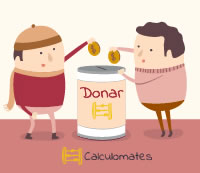Divisors of 19810
Sheet with all the Divisors of 19810
Divisors of 19810
The list of all positive divisors (that is, the list of all integers that divide 22) is as follows :
Accordingly:
19810 is multiplo of 1
19810 is multiplo of 2
19810 is multiplo of 5
19810 is multiplo of 7
19810 is multiplo of 10
19810 is multiplo of 14
19810 is multiplo of 35
19810 is multiplo of 70
19810 is multiplo of 283
19810 is multiplo of 566
19810 is multiplo of 1415
19810 is multiplo of 1981
19810 is multiplo of 2830
19810 is multiplo of 3962
19810 is multiplo of 9905
19810 has 15 positive divisors
Parity of 19810
In addition we can say of the number 19810 that it is even
19810 is an even number, as it is divisible by 2 : 19810/2 = 9905
The factors for 19810
The factors for 19810 are all the numbers between -19810 and 19810 , which divide 19810 without leaving any remainder. Since 19810 divided by -19810 is an integer, -19810 is a factor of 19810 .
Since 19810 divided by -19810 is a whole number, -19810 is a factor of 19810
Since 19810 divided by -9905 is a whole number, -9905 is a factor of 19810
Since 19810 divided by -3962 is a whole number, -3962 is a factor of 19810
Since 19810 divided by -2830 is a whole number, -2830 is a factor of 19810
Since 19810 divided by -1981 is a whole number, -1981 is a factor of 19810
Since 19810 divided by -1415 is a whole number, -1415 is a factor of 19810
Since 19810 divided by -566 is a whole number, -566 is a factor of 19810
Since 19810 divided by -283 is a whole number, -283 is a factor of 19810
Since 19810 divided by -70 is a whole number, -70 is a factor of 19810
Since 19810 divided by -35 is a whole number, -35 is a factor of 19810
Since 19810 divided by -14 is a whole number, -14 is a factor of 19810
Since 19810 divided by -10 is a whole number, -10 is a factor of 19810
Since 19810 divided by -7 is a whole number, -7 is a factor of 19810
Since 19810 divided by -5 is a whole number, -5 is a factor of 19810
Since 19810 divided by -2 is a whole number, -2 is a factor of 19810
Since 19810 divided by -1 is a whole number, -1 is a factor of 19810
Since 19810 divided by 1 is a whole number, 1 is a factor of 19810
Since 19810 divided by 2 is a whole number, 2 is a factor of 19810
Since 19810 divided by 5 is a whole number, 5 is a factor of 19810
Since 19810 divided by 7 is a whole number, 7 is a factor of 19810
Since 19810 divided by 10 is a whole number, 10 is a factor of 19810
Since 19810 divided by 14 is a whole number, 14 is a factor of 19810
Since 19810 divided by 35 is a whole number, 35 is a factor of 19810
Since 19810 divided by 70 is a whole number, 70 is a factor of 19810
Since 19810 divided by 283 is a whole number, 283 is a factor of 19810
Since 19810 divided by 566 is a whole number, 566 is a factor of 19810
Since 19810 divided by 1415 is a whole number, 1415 is a factor of 19810
Since 19810 divided by 1981 is a whole number, 1981 is a factor of 19810
Since 19810 divided by 2830 is a whole number, 2830 is a factor of 19810
Since 19810 divided by 3962 is a whole number, 3962 is a factor of 19810
Since 19810 divided by 9905 is a whole number, 9905 is a factor of 19810
What are the multiples of 19810?
Multiples of 19810 are all integers divisible by 19810 , i.e. the remainder of the full division by 19810 is zero. There are infinite multiples of 19810. The smallest multiples of 19810 are:
0 : in fact, 0 is divisible by any integer, so it is also a multiple of 19810 since 0 × 19810 = 0
19810 : in fact, 19810 is a multiple of itself, since 19810 is divisible by 19810 (it was 19810 / 19810 = 1, so the rest of this division is zero)
39620: in fact, 39620 = 19810 × 2
59430: in fact, 59430 = 19810 × 3
79240: in fact, 79240 = 19810 × 4
99050: in fact, 99050 = 19810 × 5
etc.
Is 19810 a prime number?
It is possible to determine using mathematical techniques whether an integer is prime or not.
for 19810, the answer is: No, 19810 is not a prime number.
How do you determine if a number is prime?
To know the primality of an integer, we can use several algorithms. The most naive is to try all divisors below the number you want to know if it is prime (in our case 19810). We can already eliminate even numbers bigger than 2 (then 4 , 6 , 8 ...). Besides, we can stop at the square root of the number in question (here 140.748 ). Historically, the Eratosthenes screen (which dates back to Antiquity) uses this technique relatively effectively.
More modern techniques include the Atkin screen, probabilistic tests, or the cyclotomic test.
Numbers about 19810
Previous Numbers: ... 19808, 19809
Next Numbers: 19811, 19812 ...
Prime numbers closer to 19810
Previous prime number: 19801
Next prime number: 19813

Copyright © 2019
